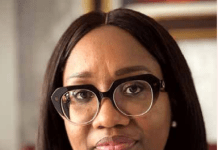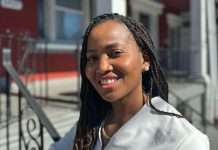
Dr Nina Mezu-Nwaba, is a pharmacist and captain with the United States Public Health Service. She is the deputy office director in the office of Neurological and Physical Medicine Devices, Centre for Devices and Radiological Health (CDRH) at the Food and Drug Administration (FDA). She has over 27 years of experience and over 22 years of clinical, scientific, and regulatory experience at the FDA, Centres for Disease Control (CDC), Indian Health Service (IHS), and Office of the Assistant Secretary for Preparedness and Response (ASPR). She has also served as the deputy programme director for ASPR/CDC White House COVID Testing Task Force, where she played a critical role in establishing COVID test sites in New York during the Omicron surge and other public health emergencies.
In this exclusive interview with Temitope Obayendo, she recommends ways to tackle the medical equipment shortage challenge in the Nigerian healthcare system. She also acknowledges the critical roles of pharmacists in the healthcare landscape, urging the Nigerian government to emulate the example of the United States government in having greater engagement with pharmacists for patients’ best outcomes. Excerpts:
Kindly share with us crucial impacts you have made in your roles over the years.
I established FDA’s Opioid Overdose Response and Naloxone training and continue to serve as the lead coordinator for the training team. We have trained over 7000 people globally since 2018, and partner with health departments and non-governmental organisations (NGOs) to provide free naloxone.
My innovative approach to healthcare has resulted in several firsts, including conducting the first opioid overdose response and naloxone training in Pikesville Rotary Club in Maryland, USA (2018) and Abuja, Nigeria (2019). I also conducted cardiopulmonary resuscitation and Automated External Defibrillator training in USA and Nigeria.
I mentor and teach over 300 pharmacy students and interns annually on FDA regulations and pharmacy practice; and I also work with high school students to provide health education and guidance on career choices. As the President of Pikesville Rotary Club, I co-led projects to provide essential supplies (care packages) to sick children, benefiting over 500 patients.
Over the past 20 years, I have conducted and organised numerous medical missions and health fairs in both the United States and Nigeria, benefitting over 2500 people annually. I have also collaborated with the United States Pharmacopeia to train regulators from various African countries on medical device regulations.
Outside of professional pursuits, I enjoy cooking, travelling, mentoring, volunteering, and spending time with family. I am one of ten children of Dr S. Okechukwu Mezu and Prof, Dr Rose Ure Mezu, and have been married for 29 years to Edward Nwaba. We have four highly accomplished adult children – Dr Adaure, Edward (Jr) Esq., Dr Amanda and Ginika – with careers in medicine, public health, and law.
I have received numerous awards for contributions to public health, including the Surgeon General’s Exemplary Medal, Outstanding Service Medal, PHS Commendation Medals, Citations from FDA, and awards from Maryland Governor, senators, congressmen, Rotary International, and other local and international organisations.
You are a pharmacist and a captain. What informed your decision for the two professions?
Certainly, my decision to pursue both professions of pharmacist and an officer in the United States Public Health Service (USPHS) Commissioned Corps was informed by my passion for community service and a strong commitment to public health. After being offered a job at the FDA as a civilian, I received a call from a former classmate at the University of Maryland Pharmacy School, inviting me to join the USPHS Commissioned Corps. He described it as a pharmacist’s best-kept secret and emphasised its commitment to the service of health. Given my deep-rooted dedication to community service, the decision was clear for me.
The USPHS Commissioned Corps stands as a vital voice for the Federal Government on public health priorities. Led by the US Surgeon General, this distinguished group is tasked with safeguarding, promoting, and advancing the health of our nation and it is one of the eight uniformed services. The USPHS Commissioned Corps has approximately 6,000 highly skilled public health professionals who serve underserved and vulnerable populations both within the United States and internationally.
The Corps comprises professionals from diverse backgrounds, including dentists, physicians, pharmacists, nurses, engineers, veterinarians, and other health specialists. Notably, our roles are twofold: we engage in work at government agencies while also being available for activation to respond to public health emergencies, both domestically and internationally.
USPHS officers have been at the forefront of critical efforts, such as combating the spread of Ebola in West Africa, responding to the devastation brought about by hurricanes like Harvey, Irma, Maria, Michael, and Florence, and playing a pivotal role in containing the spread of the Coronavirus.
In essence, my decision to pursue, both professional pathways was driven by the opportunity to combine my expertise as a pharmacist with my dedication to service in a capacity that allows me to contribute significantly to the health and well-being of communities, particularly those that are underserved and in need of care. I am a huge advocate for preventive care. I believe in health education being the key to reducing negative effects of health.
How would you describe the place of medical devices in healthcare system?
Medical devices play a fundamental role within the healthcare system, permeating various aspects of our daily lives. From the moment we wake up until we retire for the night, we interact with multiple medical devices.
To fully grasp the significance of medical devices, it’s essential to provide a comprehensive definition of what they encompass. According to the U.S. FDA, a product qualifies as a medical device and falls under FDA regulation if it meets the criteria set forth in Section 201(h) of the Food, Drug, and Cosmetic Act. This Act defines a medical device as “an instrument, apparatus, machine, implant, in vitro reagent, or a related article, including its components or accessories, that fits one or more of the following criteria – (a) recognised in official reference sources like the National Formulary or the United States Pharmacopoeia, or supplements to them; (b) intended for use in diagnosing diseases or conditions, as well as in curing, mitigating, treating, or preventing diseases in humans or animals; three, intended to affect the structure or function of the body or other animals, and which does not achieve its primary intended purposes through chemical action within or on the body of man or other animals and which is not dependent upon being metabolised for the achievement of its primary intended purposes. The term “device” does not include software functions excluded pursuant to section 520(o).”
Given this definition, a lot of everyday items fall within the scope of medical devices, ranging from thermometers and blood pressure kits, to syringes, drug/device combination products, testing kits for various ailments, and even hospital beds. Transitioning to healthcare settings, medical devices drive the medical interventions critical to life, spanning from life-sustaining tools to devices for acute and chronic treatments.
For instance, within the neurological and physical medicine device arena, one encounters critical devices designed to address conditions such as stroke, embolism, depression, and seizures. Even the essential tool of wheelchairs falls within this category. Therefore, the landscape of medical devices extends beyond mere instruments; it encompasses a vast array of technologies that collectively enhance patient care, contribute to diagnoses, enable treatments, and ultimately improve quality of life.
From your years of experience, how can the Nigerian healthcare system be adequately equipped with medical equipment, as it is practiced in advanced climes?
Nigerian healthcare system can be adequately equipped with medical equipment, similar to practices in developed countries, by adopting a multi-faceted approach and collaboration among various stakeholders. This includes engaging with local and international manufacturers to build capacity, working with other regulatory agencies with proven record, forging partnerships with international organisations and NGOs, developing strategic procurement strategies. While the FDA is a regulatory agency in the United States, its practices can serve as a model for ensuring the quality, safety, and effectiveness of medical devices.
Another avenue to achieve this objective is by establishing a robust regulatory framework, with adequate oversight, throughout the lifecycle of the products.
More often than none, medical practitioners in Nigeria complain of shortage of equipment for practice. In what ways will this affect healthcare delivery system?
The shortage of medical equipment can significantly impact healthcare delivery and patient outcomes. Identifying the underlying causes of shortages is crucial. Healthcare systems in countries should conduct shortage assessments to enhance capacity and establish a resilient system for sourcing alternatives when needed. They should also engage with government and regulatory bodies.
Proactive measures are essential to mitigate the impact of equipment shortages and ensure high-quality patient care. The COVID pandemic highlighted the importance of innovative thinking, where healthcare systems managed to provide critical care, even with limited resources and overwhelmed facilities. This adaptability included strategies such as sharing ventilators amidst the life-threatening challenges posed by the pandemic.
It has been observed that most medical devices are beyond the reach of the poor. In case of an accident that renders a poor patient incapacitated, requiring medical device as aid, what can such a person do?
In the scenario described, it depends on what medical devices are needed to intervene. Providing medical care to underserved and socially vulnerable communities is a concern in both developing and developed countries. Many non-governmental organisations and individuals have formed partnerships and endeavoured to bridge the gap by providing free medical missions and donations of medicines and medical equipment to target communities. Most of these free medical missions are announced on the radio and various social media and through the community leaders. Although not a perfect solution, but these are ways to trickle down the much-needed services.
For poor patients in need of medical devices, options include seeking help from NGOs and medical missions, staying informed through community announcements, utilising local clinics and health facilities, exploring government healthcare initiatives, relying on donations and charitable contributions, and advocating for policy changes.
As a clinician, what is your view on pharmacists’ participation in patients’ treatment care?
Pharmacists’ participation in patient care is forward-thinking and impactful. Their clinical training and accessibility make them valuable frontline healthcare providers. By engaging pharmacists in patient care, hospitalisations and costs can be reduced while improving outcomes.
Pharmacists contribute to immunisation, disease-monitoring, and play vital roles in healthcare delivery and preventive health education. In the USA, pharmacists played critical roles during the COVID pandemic, from immunisation, to testing, to treatment. This enhances healthcare access, eases hospital burden, and ultimately saves lives.
Having practised for over 27 years, what are the grey areas in the profession that you feel should be addressed in countries like Nigeria?
In developing countries, there are several areas in the pharmacy profession that require attention and improvement. Learning is a continuous process and continued collaboration with organisations, such as Nigerian Association of Pharmacist and Pharmaceutical Scientists in the Americas, Pharmacy Council of Nigeria, pharmacy schools, and regulatory bodies, is crucial for addressing these challenges.
Sharing best practices through ongoing education, workshops, seminars, and conferences can help bridge gaps in areas of concern and contribute to the advancement of the profession. Learning and adapting from one another ensures mutual benefit and enhances the overall quality of pharmacy services in these regions.
How would you advise young pharmacists aspiring to be like you?
My advice to young pharmacists aspiring to follow a similar path is to discover and pursue their passion within the field. Embrace continuous learning and strive to become a well-rounded pharmacist. Having a diverse skill set will empower you to address a wide range of challenges and questions that may arise in your career. Enjoy the journey, stay dedicated to your goals, and make a positive impact in healthcare.
DISCLAIMER: The views and opinions expressed in this presentation are those of the interviewee and do not represent the official policy or position of the Food and Drug Administration.










